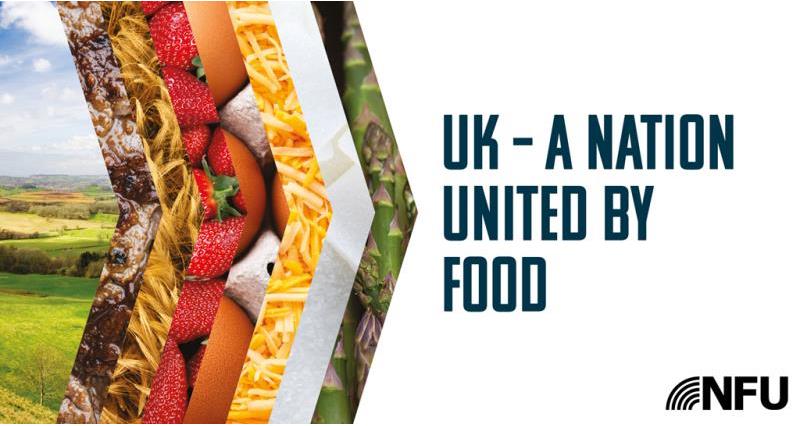The NFU held a series of roundtable meetings to develop recommendations on the themes of its UK – A Nation United By Food report.
The NFU wishes to see the UK become united by food and take the business of food seriously. To highlight this, it published the UK – A Nation United By Food report and has engaged with stakeholders to bring together views on what a future UK food policy might look like.
The aim of the roundtable meetings was to develop key recommendations on how the food industry wishes to see its future.
THEME 1: INTEGRITY AND STANDARDS
This session (12 October 2018) looked at the importance, relevance and definition of food integrity and standards. This is an area that will be vital for government to grapple with as the UK moves through Brexit and the potential for new trade deals.
Key areas discussed included the importance of upholding and improving food safety within the UK, within all supply chain, the expectation of shoppers that products are authentic, and the importance of having a whole systems approach.
The session was opened by Professor Chris Elliott, director of the Institute For Global Food Security at Queen's University Belfast, who gave an academic view of the subject area. Attendees also heard from a senior representative who gave a practical retail perspective. Read his expert blog here.
Also present at the event was Dr Louise Manning, a senior lecturer in food policy and management at Harper Adams University. Dr Manning provided a thought provoking piece discussing the need for a collective approach in order to ensure product integrity in food production. Dr Manning gives her insight on food integrity here.
THEME 2: MORAL IMPERATIVE
This roundtable session (9 November 2018) was focused around the question; do we have a moral imperative to maximise the production of the food we produce well in the UK?
Ahead of the event, Stuart Thomson, EFFP, provided a thought-provoking piece on the moral imperative for maximising UK food production, read it here.
Areas of discussion concerned the factors that are most critical to consider when addressing the moral imperative to optimise food production in the UK, including, but not limited to, eliminating hunger, the government, farmers and future use of technology.
The session was opened by Jamie Morrison, Director and Strategic Programme Leader, Food Systems Programme, Food and Agriculture Organisation of the United Nations, who encouraged us to see our national challenges in the context of the wider global moral imperative. Read Mr Morrison's insight on national food strategies here.
Attendees also heard from Lindsay Boswell, Chief Executive of FareShare, who outlined the connecting factors that contribute to food poverty in the UK, including issues with mental health, low earnings, domestic abuse, the administration of benefits and addiction. Lindsay was keen to stress that this can happen to anyone.
Event attendees Richard Griffiths, Chief Executive at British Poultry Council and Dr Gavin Milligan, Director of Green Knight Sustainability Consulting Ltd, have provided further insight on the moral imperative:
- Richard Griffiths' blog: Responsible businesses putting food at the heart of society
- Dr Gavin Milligan’s blog: Moral Maize?
THEME 3: HEALTH AND NUTRITION
This roundtable session (8 January 2019) was centred around the role of British food and farming in producing healthy, nutritious and affordable food for every person in the UK, in every walk of life. The discussion involved addressing the current nutritional challenges we face such as low intakes of key vitamins and nutrients in certain demographics and the rise of obesity.
This session was opened by Professor Judy Buttriss, Director of the British Nutrition Foundation, who provided a nutritional perspective to the discussion. Read Professor Buttriss' expert blog, Making Every Calorie Count, here.
THEME 4: WORKING WITH NATURE
The Working with Nature roundtable (28 February 2019) looked at the role of farmers acting in the interests of the environment, despite challenges from low food prices, focusing on the question of 'what does good look like?' on farm, for farmers, for the public and for other stakeholders in the supply chain.
The session was opened by Cat Moncrieff of WWF, Martin Harper of RSPB and Teresa Dent of GWCT, who spoke about some of the factors impacting on farming and the environment.
NFU President Minette Batters, who chaired the discussion, has submitted a blog around the Working with Nature theme, which can be read here.
Also in attendance was Darren Moorcroft, Director of Estates and Woodlands Outreach at The Woodland Trust. Read his blog on how agroforestry will deliver for farming and the environment here.
